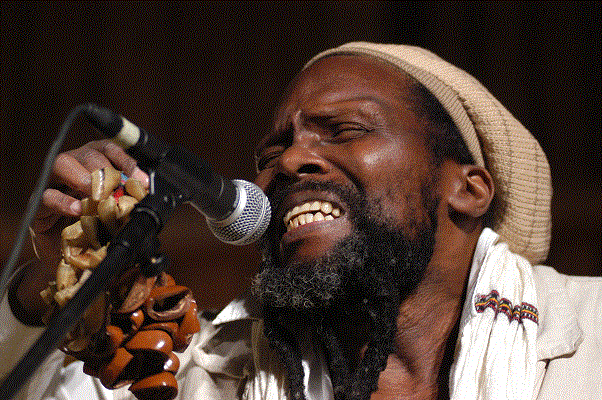Vocalist/percussionist extraordinaire Mansur Scott, known all over New York City as a serious sage and “the jazz mayor of Harlem” is the epitome of a working jazz musician. For decades, he has been at the forefront of jazz music, pushing it forward, making it accessible, boldly, and making sure it is heard in all boroughs. He is a well-known performer in Harlem’s jazz community. He has performed on many of the jazz venues, including uptown jazz spots like St. Nick’s Pub. It was years ago at St. Nick’s. After a long schedule that involved performing at least two events per day, he fell to the ground. His career was set to end when he suffered a heart attack, and then a stroke. He was just at a stage in his career where he believed things were improving. Scott claimed that he was acting as a substitute for Leon Thomas the night Thomas died. Scott recovered from his stroke and resumed his career. He also toured extensively in Europe, where he recorded his first recording, called Sometimes Forgotten, But Sometimes Remembered. This CD is intimate and personal. It is an autobiographical CD that grabs listeners and takes them on an emotional journey that is so real and pleasurable that you will never want to stop listening. Scott’s voice is described as a blend of Joe Williams (of the legendary Count Basie big band of 1940s and 1950s); and Leon Thomas, a Coltrane disciple and soulful singer; it is raw, raw, and spiritual. It is a powerful voice that captures the essence and spirit of every moment. He gives the “Days Of Wine and Roses” a very upbeat, sharp, and swinging performance. His straight-ahead vocals are quite daring, defying gravity and quite acrobatic. The song “Days” is a standout track on the album. It swings well, and it is also a touching tribute to his wife, “Sabra.” Mansur Scott’s superb interpretation of standards is featured on Sometimes Forgotten, Sometime Remembered. The dazzling renditions of “Nature Boy” (and the funky, groovy Miss Otis Regrets) are outstanding, as well as the lovely interpretation of “Song For My Father.” It is an obscure composition by Bus Brown, a Baltimore singer/songwriter. The title of “When The Lady Sings” is what makes it so special, weaving a story within another story. Scott has a great voice and is skilled at changing phrases to please the listener. “Lady”, dedicated to Billie Holiday, aka Lady Day. It has only been recorded once since the late 1970s. Mansur has performed it several times on the stage and includes it here as a tribute for his friend and mentor, Bus Brown. Brown was living in Durham North Carolina when they met. This beautiful, thought-provoking update is a great way to remember Lady Day and Bus Brown, the journeyman who just passed away at the age of 99 and a quarter. Scott’s modesty and humility are evident in this song. It also tells the story of how to survive. This (Sometimes!) recording is made possible by Mansur’s choice of exceptional musicians. The much-in-demand pianist, Carlton Holmes has been known for being an original, soulful soloist as well as a skilled member of a rhythm section. Wayne Batchelor, a London native and seasoned bass player, provides the perfect balance between vocalists and bass. Marc Johnson, the CD’s drummer, is the sturdy, young, Max-like Marc Johnson. His work seems highly inspired by Mansur’s voice. It’s a beautiful balance! The whole album is about finding balance in life. It’s about how to make sense of everything, and how to accept the good as well. It seems to be saying that “Sometimes Forgotten” is the title of the album. Sometimes Remembered is a masterpiece to listen to that makes the listener see that life is short, bittersweet and that it runs away like a child playing. from http://www.jazzmap.de/html/mansur_scott.html
